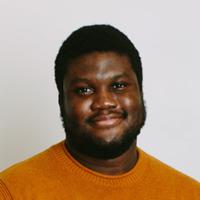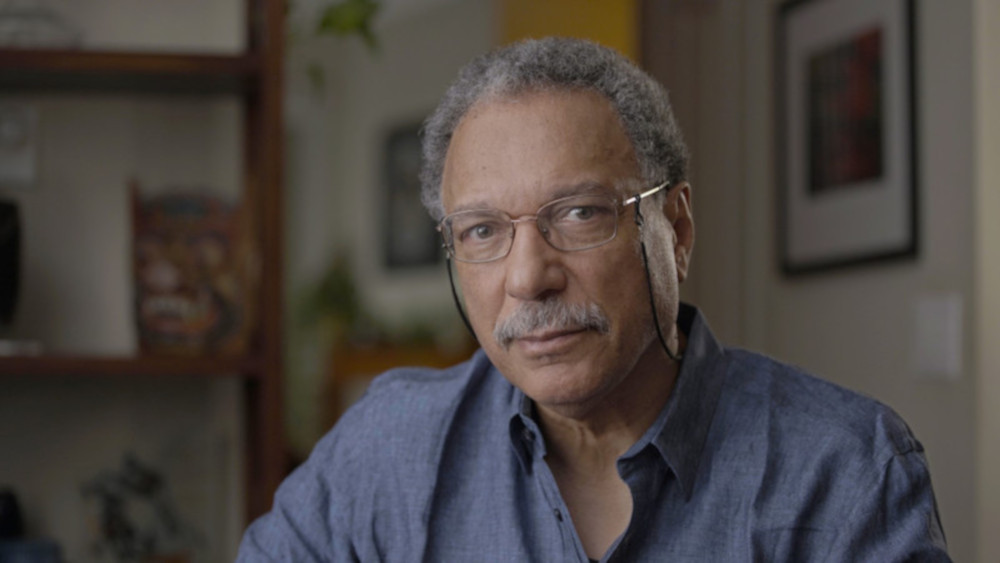What did we at The Tyee learn this year? That good ideas are in abundance. Gathered here are times we profiled fascinating thinkers converting their knowledge into positive results.
Daniel Pauly’s Three Big Moves to Save the World’s Threatened Fisheries
What would noted University of British Columbia scientist Daniel Pauly do about the sorry state of global fish stocks if he could command action? The scientist, who has a reputation for bluntness, doesn’t hesitate for a minute, rattling off three major reforms.
Dr. Jen Gunter on Goop, Porn, Loving Your Vagina — and Voting
From Gwyneth Paltrow to the Federalist, there’s some serious misinformation out there about reproductive organs. Lucky for us, Dr. Jen Gunter is taking us all back to school. We chatted with the author of The Vagina Bible about her “vagenda” and the scourge of people peddling misinformation.
To Teach Kids that Know More of Pokemon than Phytoplankton, David Ng Made a Game of It
If Pokemon is so good at teaching kids about an imaginary world, why can’t a similar game teach them about the real one? The University of British Columbia’s David Ng and his colleagues took that question — prompted by British scientist Andrew Balmford — to heart and sparked a new way of teaching and learning about the natural world, the sciences and even design. The result is a game called the Phylo Project, and it’s blooming.
Science World’s Scott Sampson Has a Head of STEAM
A dinosaur paleontologist is now in charge of Vancouver’s symbol of futurism, Science World. Scott Sampson wants to shift the silver-domed institution into a venue for imagining and debating all things STEAM — the acronym for Science, Technology, Engineering, Art and Design, and Math. “I am really passionate about institutions like this being critical vehicles for social change and for helping the community fulfill its most pressing needs.”
Sadie Kuehn Wants You to Know BC’s Black History
The Vancouver School Board’s first Black trustee Sadie Kuehn has been fighting for racial justice in Vancouver schools for decades. So in the midst of criticism of the school board’s response to racism in Vancouver schools, we sat down with Kuehn to discuss B.C.’s racism blind spots, the province’s underexplored Black history, and how the Vancouver School Board’s response to racism has changed since 1985.
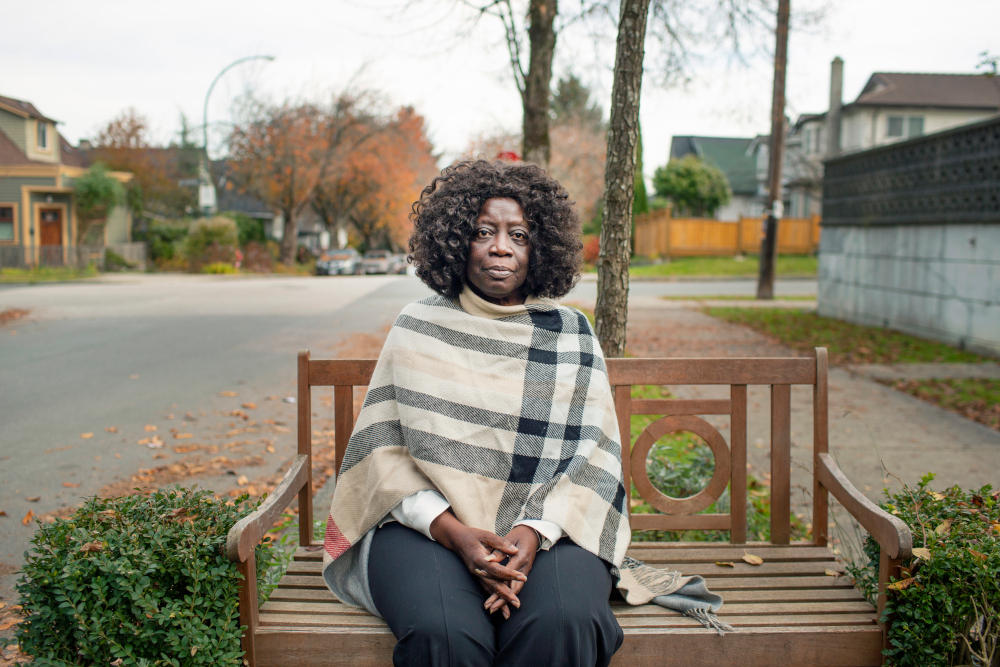
Meet the Economist Advising BC on Whether to Go Ahead with a Basic Income
“I’m an agnostic because I can see both sides,” says University of British Columbia economist David Green, who is chairing the B.C. provincial government’s advisory committee on basic income. The committee will lead a potentially groundbreaking new $4-million study. The committee’s mandate has the blessing of the former Tory senator and basic income champion Hugh Segal who’s “delighted and pleased as punch.”
Will Things Get Weird on Mars?
If you’ve ever started to feel a little testy after a long vacation with your best friends, you’ll understand the nature of Phyllis Johnson’s research. The UBC sociologist studies how astronauts and, maybe one day, space colonizers deal with the stress of living in close quarters under dangerous, remote conditions. “I think eventually there will be families on Mars,” she says. If so, consider Johnson their first family counsellor.
The New World of Interaction Design
“My research is about how we interact when we create music, with instruments, other people and environments,” says Emily Carr’s Haig Armen. He is designing new musical instruments. And a new Interaction Design program. “It’s a kind of design that’s not overt,” he says. “It’s one of those areas of design that is not about how something looks, but about how it feels and how it functions. You have to know about psychology.”
The Race to Find Scientific Secrets Encoded in Indigenous Songs
In 2003, the late Chief Kwaxsistalla Wathl’thla (Adam Dick) of the Kwakwaka’wakw First Nation was asked by researchers about some unusual rock formations that had been found in the Broughton Archipelago, south of Haida Gwaii. “That’s just a lokiwey,” Kwaxsistalla told them. Then, he began to sing. Traditional songs have long been seen as cultural treasures worth preserving, but this was different. This was using music to uncover clues about how various peoples interact with the natural world. The story of an “eleventh hour” push to learn and preserve.
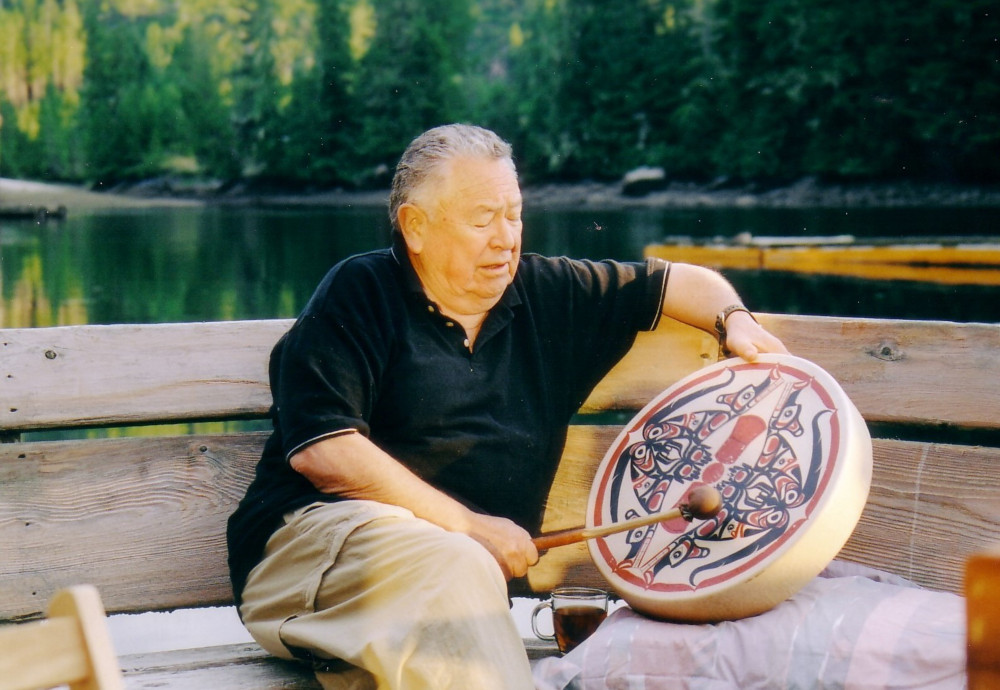
How an SFU Prof Uses Statistics to Give Killer Whales a Chance
Ruth Joy is on a team helping to save the resident orcas who swim B.C.’s waters, and is on a mission of her own: rehabilitate the reputation of her field of statistics. She crunches data on how human-made noise affects whales for the Sea Mammal Research Unit, a side gig from her main job as a lecturer at SFU. “Statistics have suffered from an unfair portrayal as... an evil subject that you have to take in order to get your degree,” she says. But “numbers don’t lie.”
An Indigenous Protest that Reaches from Guatemala to Vancouver
Canadian mining companies have been accused of ignoring the opposition of the Xinka people in Guatemala to mine in their territory. “What we’re asking the company and the Guatemalan government is to respect our human rights and our ways of life and traditions,” said Luis Fernando García Monroy, a representative of the Xinka people in Guatemala who was shot by the private security of a Canadian mining company in Guatemala. We talked to García about the Canadian connections to resource-related violence abroad and the Indigenous right to say no to resource development.
A Window into Making the City of Glass Greener and Happier
Glassier towers aren’t very green. The fact that they gobble up a lot of energy could mean a new crisis for the city of glass. Architecture grad Genta Ishimura proposes a way to fix Vancouver’s energy-leaking condo towers.
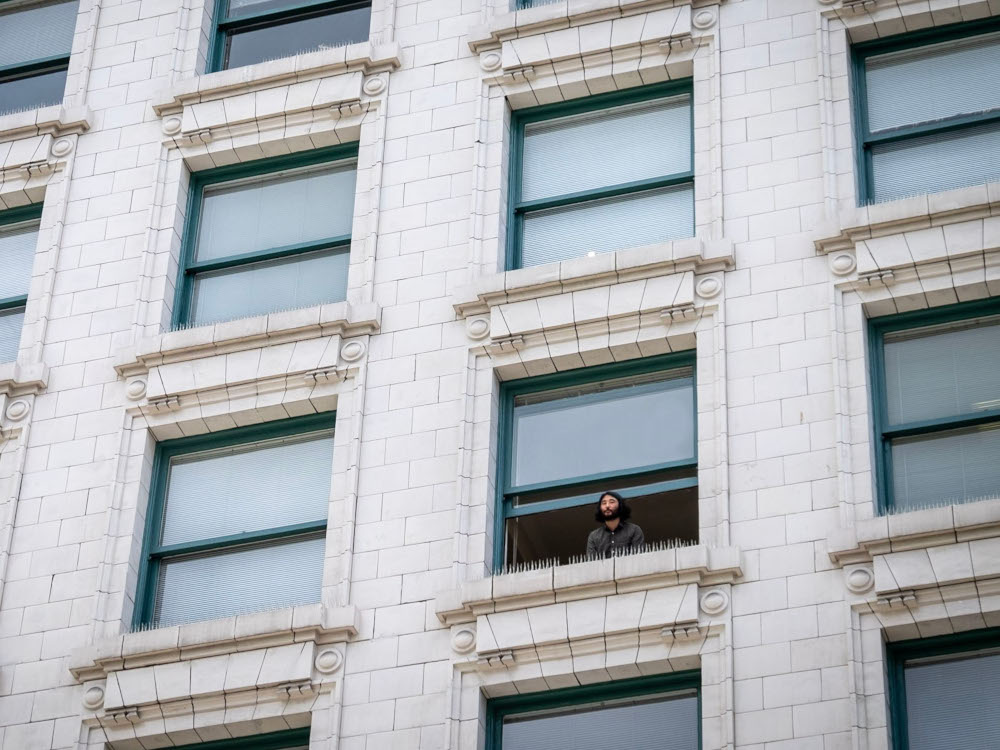
Bob Joseph Is Back with Tips for Making ‘Reconciliation a Reality’
How is reconciliation in Canada going? What can be done better? How do we keep making important steps in the right direction? We sat down with Bob Joseph, one of the writers of the bestselling Indigenous Relations, to talk about his book and his thoughts on Canada’s reconciliation progress.
UBC’s d’Entremont on Engineering, Gender, Teaching and More
When UBC’s Agnes d’Entremont is not applying her mechanical engineering knowledge to how humans’ joints work (and how to build a better crash test dummy), she’s working on making more room for women in engineering through best teaching practices. “Medicine has reached parity, law has reached parity, engineering isn’t close,” she says. “Nationally we’re at 12 to 13 per cent.”
‘I Always Find a Way to Make the Hard Stuff Funny’
Comedian Ryan Lachance describes his show Rape is Real & Everywhere as “facing the monsters under the bed and saying, ‘You are not in charge of me anymore.’” We talked to Lachance about trauma, the necessity of laughter, and why making jokes about difficult subjects is important to him.
Listening to the Bones: How a Discipline Went from Racism to Reconciliation
Bones can reveal a lot — age, sex, stature, diet, diseases, a history of food shortages or conflict with neighbours, and the attitudes of the living toward the deceased. Too often archeologists in the past have stolen remains and advanced racist theories. UBC osteo-archaeologist Darlene Weston is committed to working closely with First Nations to resolve questions of their own, on their own terms. “Underneath the skin,” she says, “we are all exactly the same.”
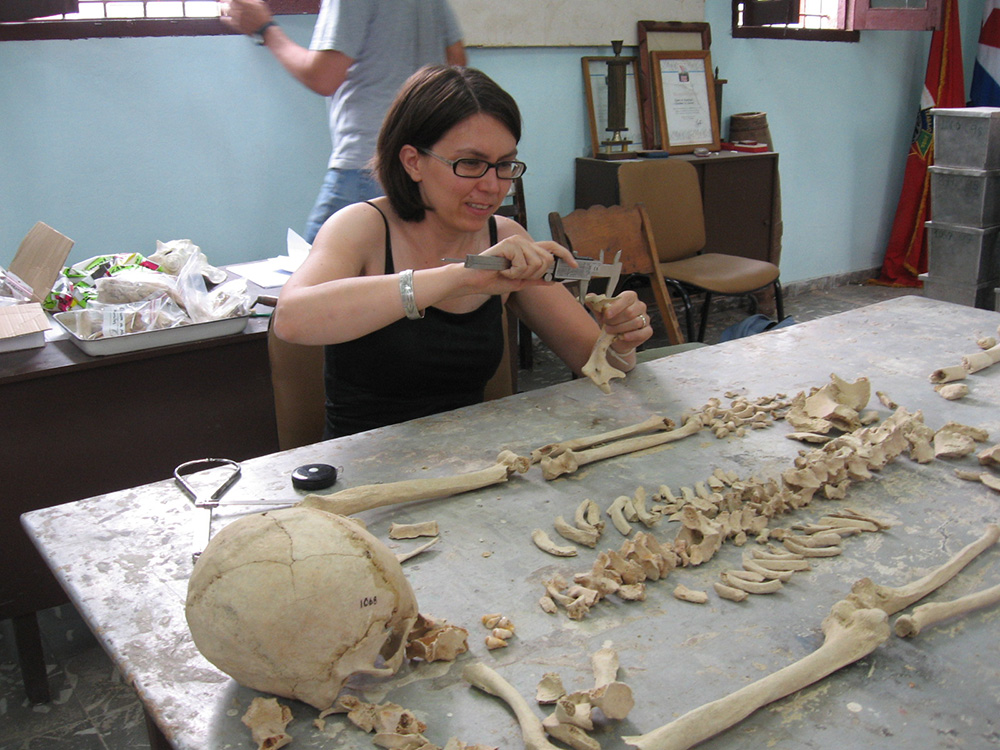
Monopoly-Friendly Canada ‘Does Not Treat Competition Policy Seriously’
Think Canada is one of the world’s most sophisticated free-market economies? Well, think again. We’re actually lagging far behind most western economies on competition policy, according to the former head of the Competition Bureau John Pecman. Pecman talked to us about why it’s time to beef up the Competition Bureau he led.
How a Team of Women Helped Make BC a World Leader in Treating Postpartum Depression
For years, new mothers showing symptoms of postpartum depression were left untreated. Then Dr. Shaila Misri thought, “Something has to be done about that.” That thought led to a revolution in mental health care around pregnancy and childbirth.
From Classroom to Courtroom: UBC Prof’s Indigenous Studies Brings Change
When battles arise over Coast Salish peoples’ human rights, treaties, fishing rights, you name it, UBC sociocultural anthropologist Bruce Miller often gets the call. Author of eight books, mostly about Indigenous people and law, he’s consulted on cases ranging from shopping mall harassment to whale hunting on the high seas.
‘Death Threat’: How Eerie and Frightening Emails Inspired a Graphic Novel
Any person comfortable and happy in their own skin is a bit of lightning rod for the Internet jungle, but the email messages writer-singer-polymath Vivek Shraya received were different than the usual online trolling she’d experienced, and more unsettling. Naturally, the author and illustrator Ness Lee turned the transphobic threats into a graphic novel called Death Threat. “It’s about being able to redirect that energy, and art as a way to cope,” Shraya told Tyee culture editor Dorothy Woodend.
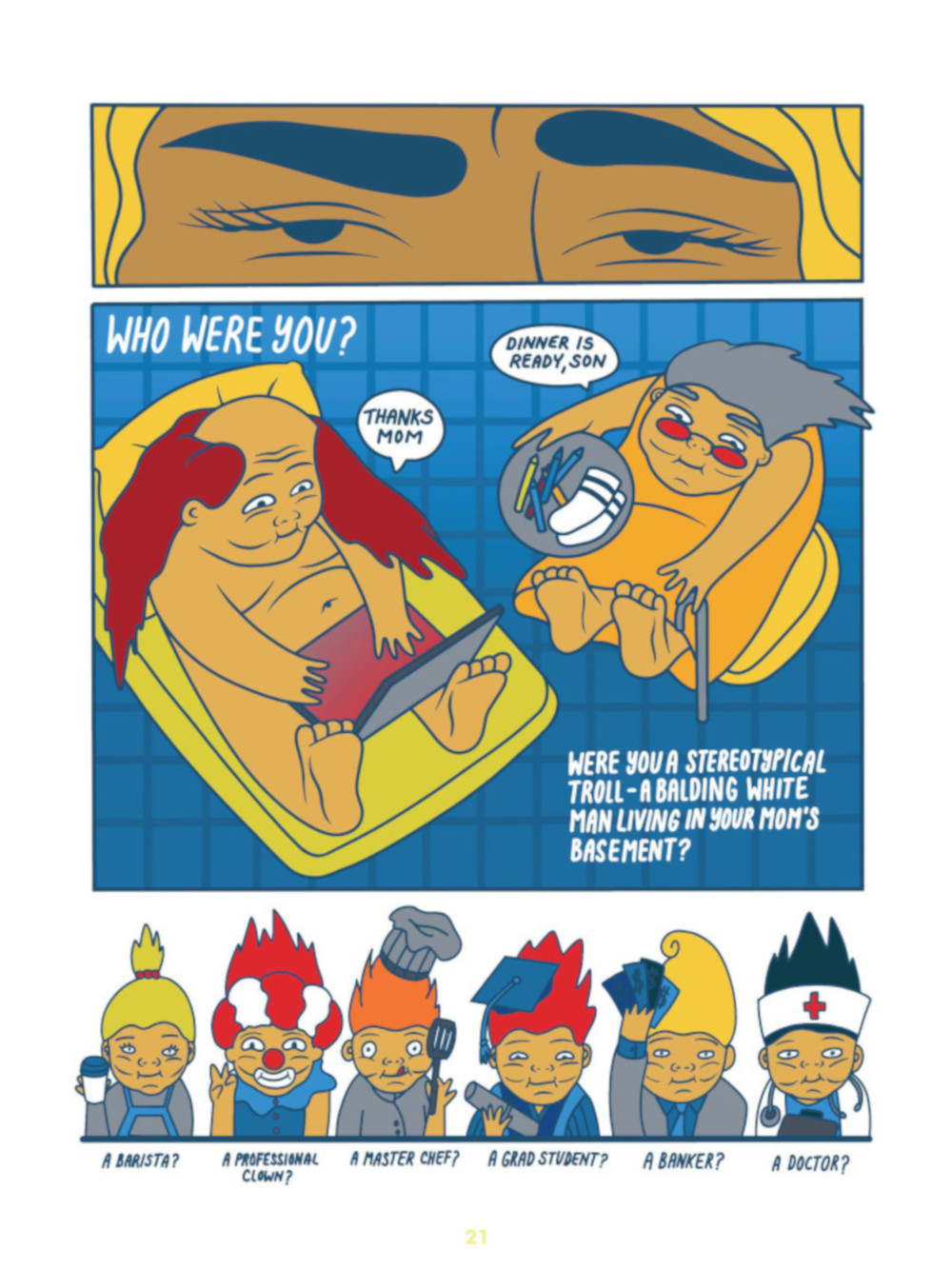
How ‘Memory Clinics’ Can Help Families Deal with Dementia
As part of his year-long exploration of new insights and politics related to dementia, Crawford Kilian interviewed Ontario medical doctor Dr. Linda Lee, who has found a way to deliver expert advice and support through local “memory clinics.” Her methods have earned her several professional awards, and now she and her colleagues are poised to establish memory clinics nationwide.
Wahkohtowin: A Cree Way of Living
Wahkohtowin — a central point in Cree natural law — speaks to the interconnectedness of all things, and our responsibilities to those we share the world with and the future. The teachings of Wahkohtowin survive, Elder Clarence Whitstone says, and are just as important today. Andrea Smith talked to Whitstone about how this traditional way of seeing the world and our place in it offers a path for communities today.
The Innovator: How Claudia Krebs Is Pioneering a New Kind of Medical Education
Brain biology can be scary. Claudia Krebs, a professor of medicine at UBC, has spent years and used cutting-edge technology to revamp her course on the biology of the brain and make it more accessible to students. She became a YouTube phenom in the process.
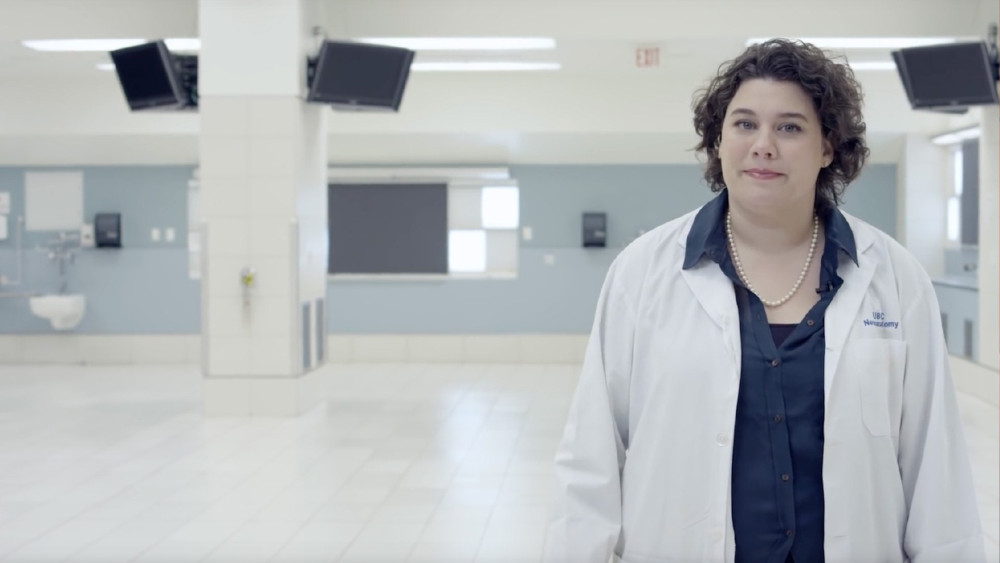
Depression, the ‘Sickeningly Common Illness No One Likes Talking About’
The failure of the medical industry to confront mental illness as one of the most urgent and pervasive medical crises, can feel like a punch in the face. Anna Mehler Paperny’s brilliant, harrowing memoir with Hello I Want to Die Please Fix Me punches back.
David Suzuki and Stephen Lewis Debrief Their Rescue Mission
The two high-profile octogenarians hit the road hoping to convince Canadians climate change dwarfs all other election issues. How did it go? We talked to the icons about their Climate First Tour, the politics of denial, and maybe storming Parliament.
‘Nature Does Not Care for Your Opinion’: Spectating at the Physics Olympics
Meet some brainiacs in the making — the 72 teams of B.C. high-school students fiercely competing to win the gold at the Physics Olympics. “From what I’ve seen kids today aren’t different at all,” says co-organizer Robin Coope. “They are as dedicated and diligent as ever — they aren’t ‘snowflakes’ or whiners or any of those cliches that get tossed around.”
Dear readers: Comments are closed over the holiday break until we return in 2019. Thanks for all the thoughtful comments this year! ![]()
Read more: Health, Education, Science + Tech, Environment


